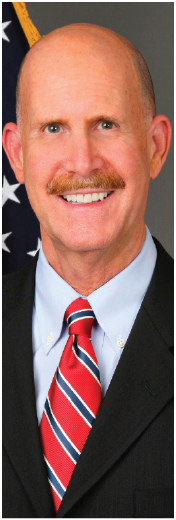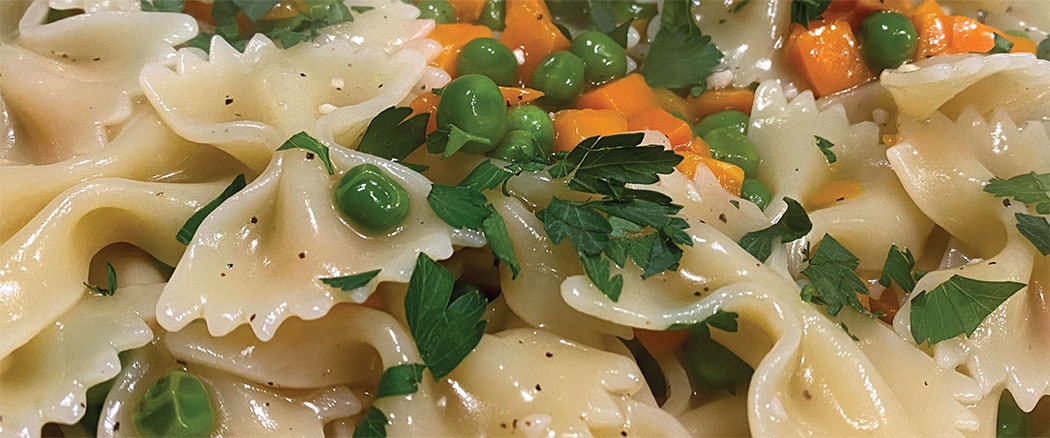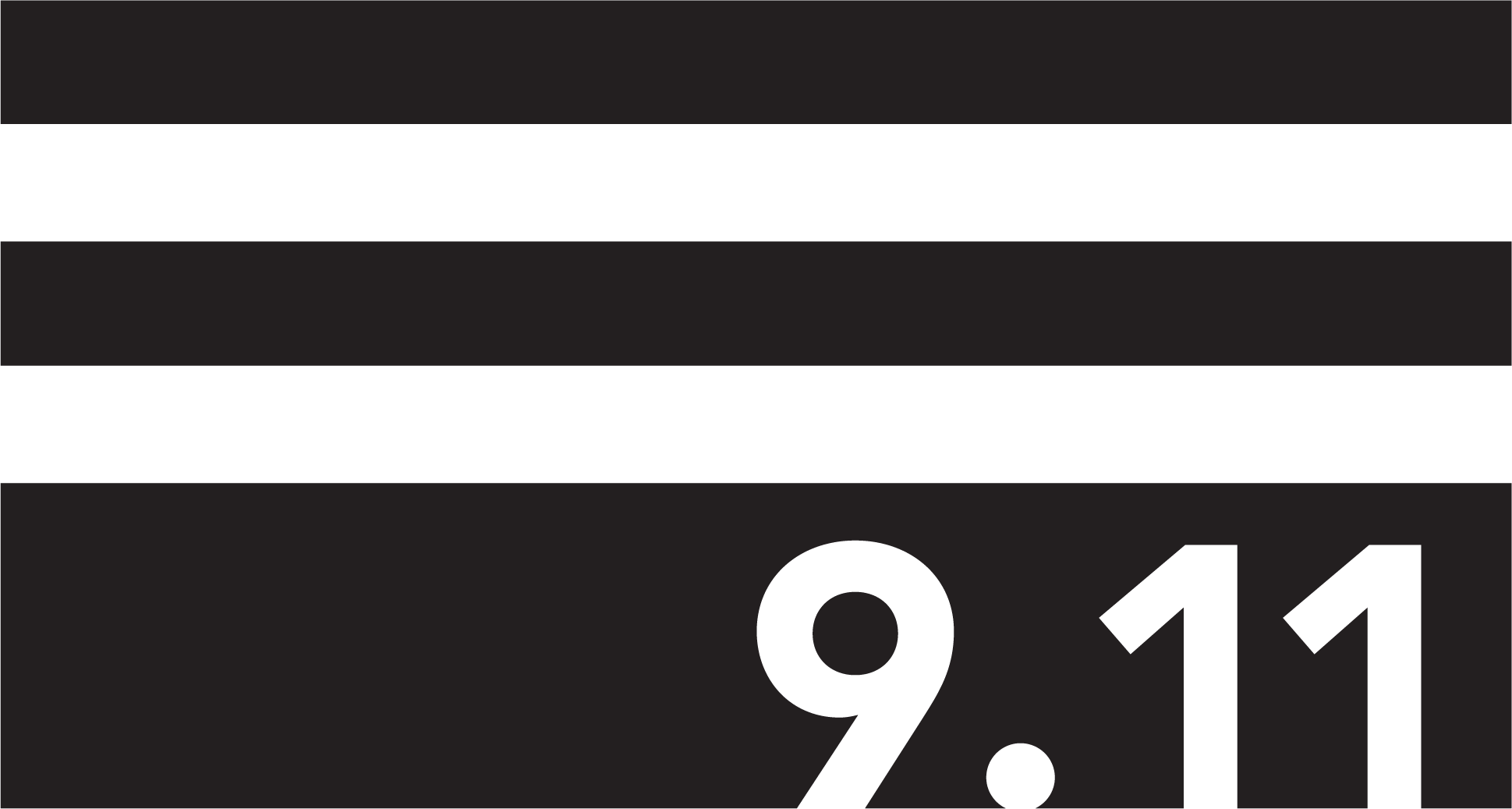
A Message from Dr. John Howard,Administrator of the WTC Health Program
Members,
The Coronavirus (COVID–19) pandemic of 2020 has challenged us all in many ways. We have worked to ensure that the physical and mental impact on the 9/11 community is lessened through various Program changes. I want to assure you that providing expert WTC–related care is a top priority for the WTC Health Program. We will continue to adapt policies and operations as necessary to ensure the best care during this trying time.
In this year’s newsletter you’ll find important information related to COVID–19 and how the Program has responded, along with information to help navigate some of the mental health affects you may be experiencing. I urge all members to follow the Centers for Disease Control and Prevention’s COVID–19 prevention guidelines. You can find those and more COVID–19 information at www.coronavirus.gov.
Now with over 100,000 total members—8,500 new members enrolled in the last year alone—we are honored to continue providing WTC– related care to each one of you.
Sincerely,
John Howard, M.D.
Administrator, WTC Health Program
Program Updates
Updated Member Handbook Now Available!
The WTC Health Program has updated the member handbook with:
- Updated treatment policies
- Updated Member Rights and Responsibilities
- Detailed Coordination of Benefits information for Survivors
See the new Member Handbook at www.cdc.gov/wtc/handbook.html.
Membership Tops 100,000
We are honored to continue to provide WTC–related medical monitoring and treatment to the 9/11 community. The WTC Health Program now has over 100,000 members, with over 50,000 certified with at least one WTC–related condition. If you know of someone that may be eligible for the Program, have them visit www.cdc.gov/wtc or call us at 1–888–982–4748 to learn more.
Remember Your Annual Monitoring Exam
Even during the COVID–19 pandemic, it is very important for you to keep up with your annual monitoring. The annual monitoring exam ensures that that your Program provider can track your health over time and see if you have any new WTC–related conditions. Be sure to call your clinic to schedule!
Please note: Monitoring exams are available to enrolled Responders and Survivors with a certified WTC–related health condition.
New Member Resources Webpage
We have redesigned the WTC Health Program Member Resources webpage so you can quickly find key member information. This includes how to designate a representative, how to transfer clinics, your member rights and responsibilities, and more. Visit the new Member Resources page at www.cdc.gov/wtc/memberresources.html.
Top Certified Conditions
- Chronic Rhinosinusitis
- Gastroesophageal Reflux Disease (GERD)
- Cancers
- Asthma
- Sleep Apnea
COVID–19 and the WTC Health Program
Providing WTC–related care during the COVID–19 pandemic is the WTC Health Program’s top priority. We thank you very much for your patience and understanding during this challenging time.
How has COVID–19 impacted the WTC Health Program?
Telehealth
The Clinical Centers of Excellence (CCEs) and the Nationwide Provider Network (NPN) have increased the use of telehealth through video or phone. This allows clinic doctors and other providers to care for you remotely. While we understand some members may prefer in–person visits, telehealth helps
ensure your safety and the safety of the providers.
While many clinics may have reopened in some capacity, appointment availability may be limited. With the unpredictable nature of COVID–19, members should expect to see telehealth or a combination of in–person and telehealth services used by the clinics.
In–Person Safety Enhancements
Program clinics are following reopening guidelines set by the Centers for Disease Control and Prevention (CDC). You may see things like new check–in procedures, protective barriers, and advanced air filtration systems.
Pharmacy Updates
To reduce trips to the store, we are temporarily allowing up to a 90–day supply of WTC–related medication to be filled at a local pharmacy if it is approved by your Program provider. Optum Home Delivery is available to mail medication to you. Sign up at wtchomedelivery.optum.com or call
1–855–640–0005, Option 2.
What you can do
The Program continues to conduct physical and mental health treatment visits, certify new conditions, conduct annual monitoring exams, and provide case management.
Maintain an active role in your care:
- Follow COVID–19 prevention guidelines set by the CDC and your state or city
- Reach out to your Program clinic if you have questions about your WTC–related care
- Keep and complete clinic appointments through telehealth when possible
- Follow all safety procedures outlined by your clinic for in–person visits
Find mental health and social assistance resources and stay up–to–date with Program changes due to COVID–19. Visit www.cdc.gov/wtc/covid19.html.
COVID–19 Prevention Tips
The best way to prevent getting sick with COVID–19 is to avoid being exposed to the virus. The CDC recommends everyone:
- Wash your hands often – Wash with soap and water for at least 20 seconds after being in public, blowing your nose, coughing, or sneezing. If soap and water is unavailable, use hand sanitizer with over 60% alcohol. Don’t touch your eyes, nose, or mouth with unwashed hands.
- Avoid close contact – Maintain at least 6 ft of distance (about 2 arm’s lengths) between yourself and others when outside your home, especially those at a higher risk of getting sick.
- Use a cloth face mask – Cover your nose and mouth with a cloth face mask, even if you don’t feel sick. Still keep distance from others. Face masks are not a substitute for social distancing.
- Cover coughs and sneezes – If you sneeze or cough, use a tissue or the inside of your elbow. Throw the tissue in the trash. Wash your hands immediately.
- Keep clean – Clean and disinfect frequently touched surfaces inside your home every day.
- Monitor your health daily – Watch for COVID–19 symptoms such as fever, cough, shortness of breath, or new loss of taste or smell. Seek immediate care for emergency warning signs such as trouble breathing, persistent pain or pressure in the chest, or bluish lips or face. Call your doctor for any other symptoms that are severe or concerning to you.
Find mental health and social assistance resources and stay up–to–date with Program changes due to COVID–19. Visit www.cdc.gov/wtc/covid19.html.
Get Your Flu Shot!
Getting a flu shot is extra important with the COVID–19 pandemic. It protects you against the types of flu that are expected to be most common this flu season. The flu shot does not cause the flu.
Getting a flu shot this year will help:
- Prevent or reduce the severity of the flu
- Keep you out of medical offices and hospitals, preserving key resources for COVID–19 care
- Determine if your symptoms might be related to COVID–19 if you do get sick. The symptoms of COVID–19 are very similar to the flu
As a WTC Health Program member, the flu shot is covered by the Program at no–cost to you. You can get a flu shot at a local pharmacy, clinic, or hospital. They will process it like any other WTC–related prescription. Members that go to a Clinical Center of Excellence in the New York metropolitan area should call their pharmacy ahead of time so that the flu shot can be approved by Optum.
Spotlight on Resilience
What is resilience and why is it important?
Stressful events can bring deeply–held emotions to the surface. Sometimes those emotions can be difficult to handle. Resilience is the ability to withstand, adapt, or rebound in response to life changes or stress. By improving resilience, we are more capable of bouncing back during these stressful times.
How can you build resilience?
Build your support network
Resilience starts with a solid support network. Prioritize relationships with those you trust and who care about you. If you don’t have a support network, try a quick online search to find a list of support groups in your area. Reach out to family, friends, or peers for mutual support and to reconnect – especially those you have not been able to see.
Accept a helping hand
Ask for help when you need it. Seeking assistance is a sign of strength, not weakness. Recognizing how you respond to setbacks can help you decide which resource can be most helpful.
Find wellness
Adopting healthy behaviors is always a good idea and can be especially helpful in building resilience. You might try:
- A new routine to prioritize your favorite activities
- Balancing challenging tasks with enjoyable ones
- Adding frequent breaks, quick stretches, and short mindfulness exercises to your day
- Physical activities that bring you joy
- Connecting with a family member or friend each day
Find purpose
Seeking purpose in our lives is to simply achieve the feeling that what we do serves a greater good. Fulfillment might be found by:
- Volunteering in your community, or helping others
- Exploring new hobbies or setting a new personal goal
Feel empowered
You’ve made it through stressful events in the past. Feel confident that you have what it takes to survive and thrive. You have the support and access to resources you need. Compile your resources or list of phone numbers you might need for serving your health needs and keep them handy.
Recognize and Overcome Feelings of Loneliness

To stay safe during the COVID–19 pandemic, many have experienced some form of social isolation and withdrawal. Understandably, many of us have also felt lonely.
Loneliness is the feeling that our interactions with others are not as often or as fulfilling as we want or hope for them to be. We can feel lonely even if we aren’t alone.
Feeling lonely can put us at risk of developing or worsening health conditions. If you feel lonely, follow the tips and resources below. You might also find that by talking with someone about it, you help them with loneliness too.
What to do if you feel lonely
While practicing personal safety and appropriate social distancing, try connecting with others in the following ways:
- Stay in touch with friends, family, and neighbors with a video call or by phone
- Volunteer
- Perform acts of kindness
- Find activities to connect with others outside while keeping safe distances
- Consider adopting a pet
If you are in crisis, call the National Suicide Prevention Lifeline at 1–800–273–8255.
Know when and how to get help
If you feel chronically lonely, experience other signs of depression, or feel that your loneliness makes normal daily activities difficult, or impossible, seek help. Organizations like NYCWell (nycwell.cityofnewyork.us) provide free and confidential resources 24 hours a day, 7 days a week.
Reach out to your primary care doctor or Program provider if you are having trouble coping. Your Program clinic can find and make referrals to resources when you need support. You may be eligible to receive counseling or mental health treatment.
Learn about other resources at www.cdc.gov/wtc/mentalhealth.html.
Source: National Institutes of Health www.nia.nih.gov/health/infographics/stay–connected–combat–loneliness–and–social–isolation
Let’s Eat! Buttons and Bows Pasta

2020 has been the year to stay at home. For many, that means meals are prepared and eaten at home too. This simple, healthy recipe from the National Heart, Lung, and Blood Institute uses standard pantry items plus a few common grocery items. There is plenty of room to substitute ingredients for what is available to you.
Ingredients
- 2 cups dry whole–wheat bowtie pasta (farfalle)
- 1 tablespoon olive oil
- 1 teaspoon garlic, minced (about 1 clove)
- 1 bag (16 ounces) frozen peas and carrots
- 2 cups low–sodium chicken broth
- 2 tablespoons cornstarch
- 1 tablespoon fresh parsley, rinsed, dried, and chopped (or 1 teaspoon dried)
- 1 medium lemon, rinsed, for 1 teaspoon zest (use a grater to take a thin layer of skin off the lemon) 1/4 teaspoon ground black pepper
Directions
- In a 4–quart saucepan, bring 3 quarts of water to a boil over high heat.
- Add pasta and cook according to package directions. Drain.
- Meanwhile, heat olive oil and garlic over medium heat in a large sauté pan. Cook until soft, but not browned.
- Add peas and carrots. Cook gently until the vegetables are heated through.
- In a bowl, combine chicken broth and cornstarch. Mix well. Add to pan with vegetables and bring to a boil. Simmer gently for 1 minute.
- Add parsley, pasta, lemon zest, and pepper. Toss gently and cook until the pasta is hot.
- Serve 2 cups of pasta and vegetables per portion.
View the recipe online, download a recipe card, and get nutrition information at www.nhlbi.nih.gov/health/educational/wecan/eat–right/buttons–bows–pasta.htm
Updates from the September 11th Victim Compensation Fund
VCF Launches New Website
The VCF recently relaunched www.vcf.gov to make information more accessible to the 9/11 community. The new website features step–by–step instructions to register and to file a claim, COVID–19–related updates, and resources to help you understand how to prove you were present at one of the 9/11 sites–a key eligibility requirement for compensation.
VCF Registration Deadlines
The VCF has provided clarification on its registration deadlines for those that may want to file a VCF claim now or in the future:
- If you were certified by the WTC Health Program for a 9/11–related physical health condition before July 29, 2019, you need to register with the VCF by July 29, 2021.
- If you are certified for any 9/11–related physical health condition after July 29, 2019, then your registration deadline is extended for two years after the latest date of such a certification. You may choose to register now, even if you are not sick or certified by the Program.
Registration is not the same as filing a claim. Registration preserves the right to file your claim in the future, waives no legal rights, and does not obligate you to file a claim. Regardless of when you register, the deadline to file a claim is October 1, 2090.
For more information, visit www.vcf.gov or call the VCF Helpline at 1–855–885–1555.
NOTE: The VCF provides financial compensation for physical injuries, illnesses, or deaths that happened as a result of the 9/11 attacks. The VCF is a separate program from the WTC Health Program and is administered by the U.S. Department of Justice.
Keeping WTC Health Program Members and Providers Safe
The WTC Health Program believes that everyone should feel safe. We ask that you always show respect to others. Disruptive and abusive behavior directed towards a WTC Health Program staff person or facility will not be tolerated.
These types of behavior include:
- Acts of violence or threats against staff or other patients, including verbal or physical abuse
- Rude or vular language, including cursing or shouting
- Throwing and striking objects
- Harassing or stalking
- Concealing or using a weapon
- Engaging in criminal behavior
To keep everyone feeling safe, the Program has written a statement on Disruptive and Abusive Behavior that is available at www.cdc.gov/wtc/handbook.html#behavior.
Here For You: Contact Info
Who do I call when I have questions about...?
- Enrollment
- Appeals
- Program Benefits
- Program Policies
- Updating Contract Information
- Appointments
- Care and treatment
- Medications
- Case management
- Clinic transfers
- Pharmacy benefits
- Issues filling your prescriptions
- Home delivery service
WTC Health Program Call Center
Who do I call when I have questions about...?
- Enrollment
- Appeals
- Program Benefits
- Program Policies
- Updating Contract Information
- Appointments
- Care and treatment
- Medications
- Case management
- Clinic transfers
- Pharmacy benefits
- Issues filling your prescriptions
- Home delivery service
WTC Health Program Call Center
1–888–982–4748
Monday–Friday 9am to 5pm Eastern
Pharmacy Benefits Manager
Optum
1–855–640–0005
Nationwide Provider Network
Logistics Health Inc. (LHI)
1–877–498–2911
Survivor Clinics
NYC Health + Hospitals
Elmhurst & Bellevue: 1–877–982–0107
Gouverneur: 1–212–238–7400
William Street Clinic (LHI)
1–800–714–7426
General Responder Clinics
Icahn School of Medicine at Mount Sinai
1–888–702–0630
New York University Grossman School of Medicine
1–212–263–7335
Northwell Health
1–718–267–2420
Rutgers, The State University of New Jersey
1–848–445–0123
State University of New York, Stony Brook
1–631–855–1200
FDNY Clinics
All FDNY locations:
1–718–999–1858
Moving? If you have moved or are planning to move, please let us know right away. Call 1–888–982–4748 to update your contact information to be sure you receive important Program information.
Follow the WTC Health Program
Facebook: Search @WTCHealthProgram or visit facebook.com/WTCHealthProgram

 This webpage is archived for historical purposes and is no longer being maintained or updated. Please use the search bar to find more recent information.
This webpage is archived for historical purposes and is no longer being maintained or updated. Please use the search bar to find more recent information.